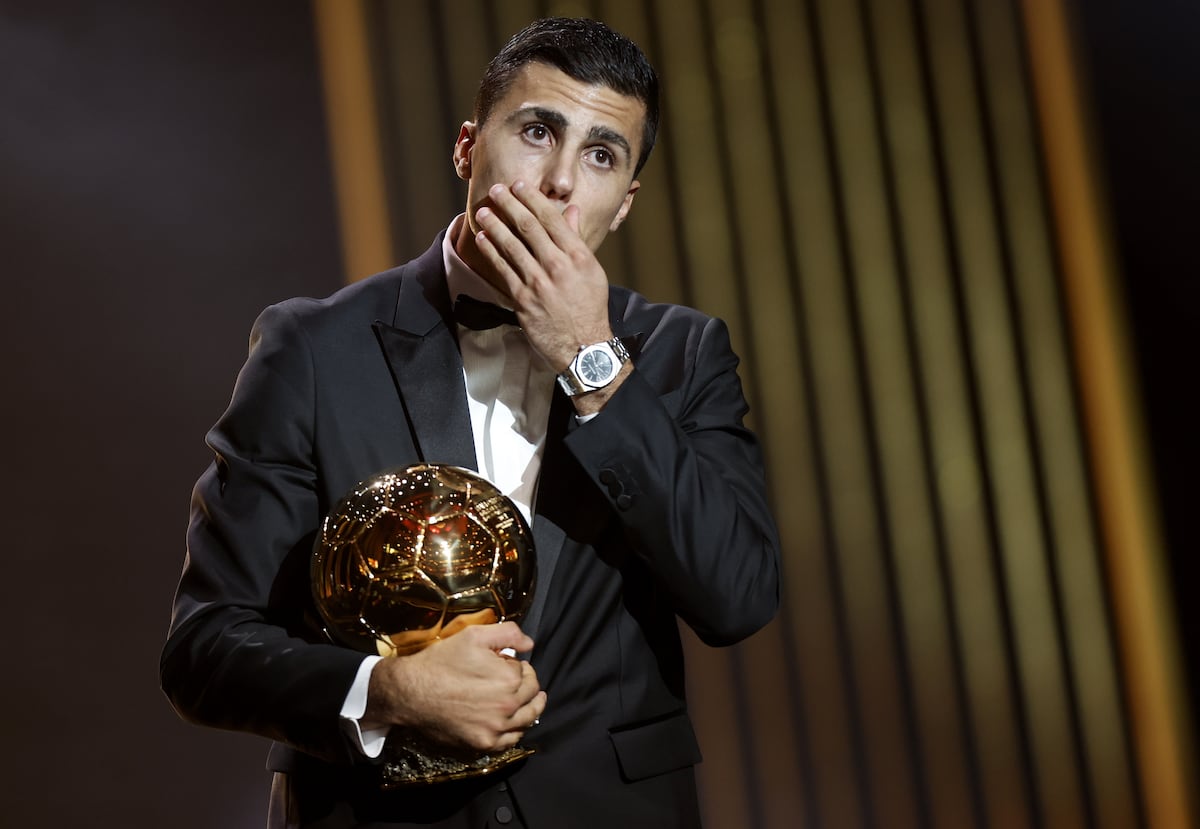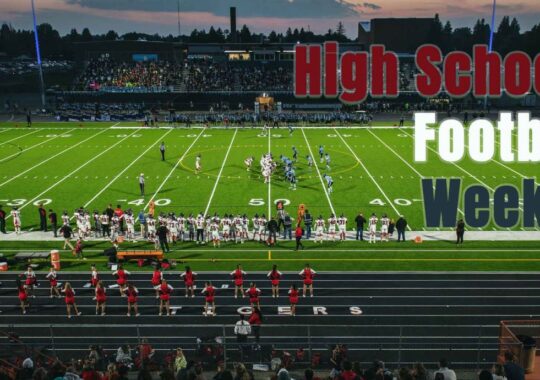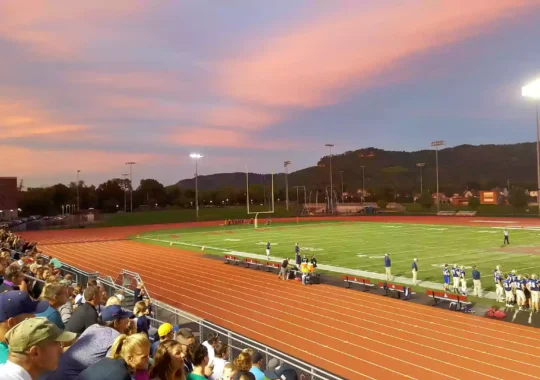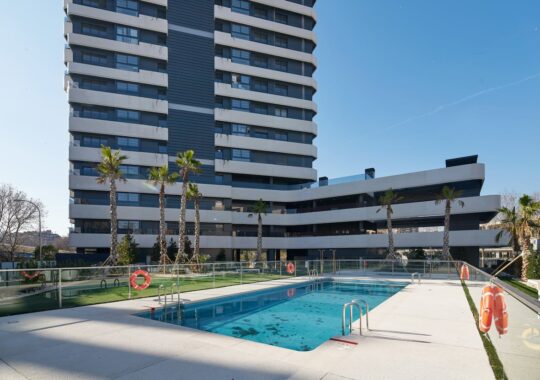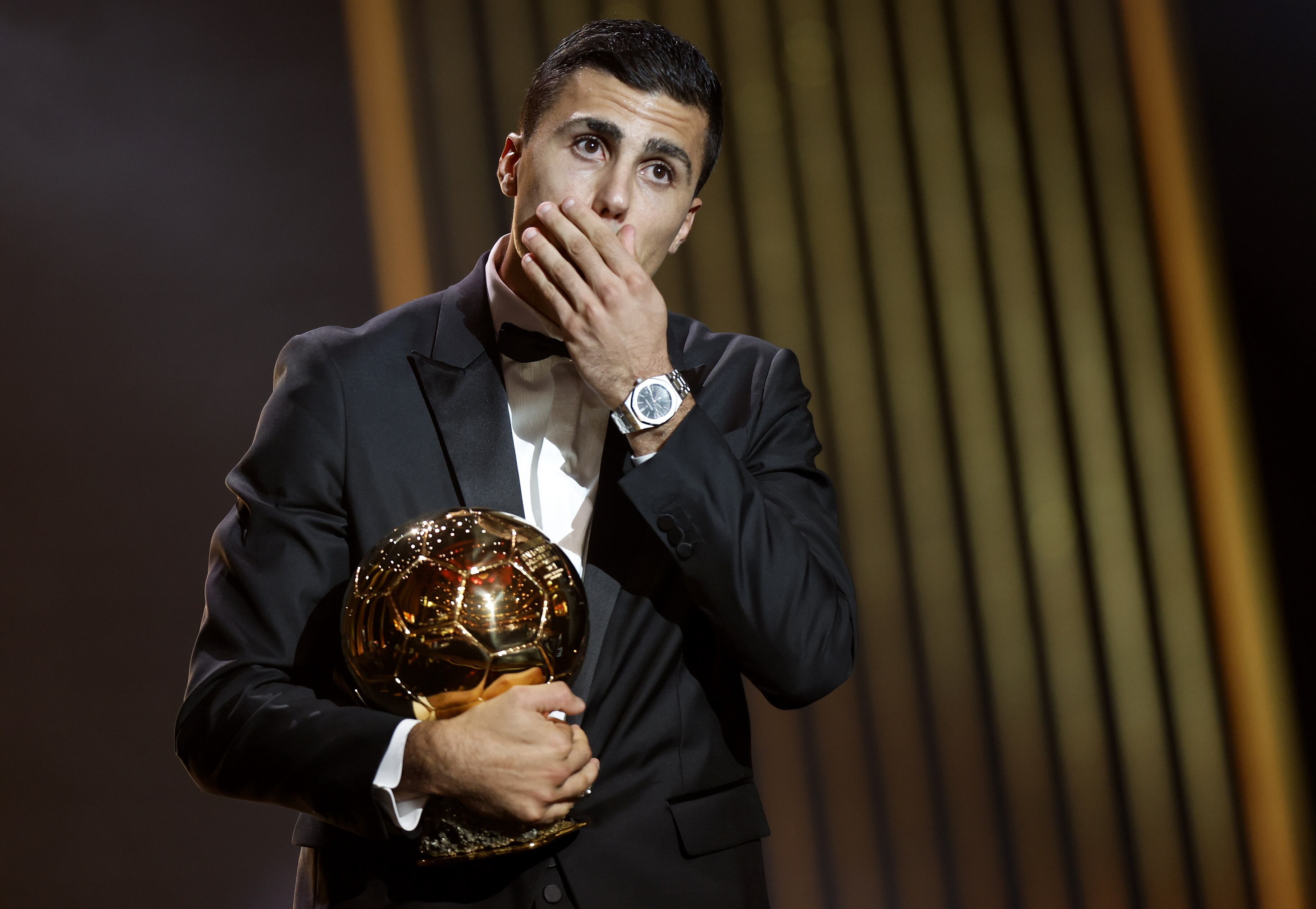
Rodrigo Hernández flew this Monday morning from Manchester to Paris, and what he knew was that he did so to sit in the front row of the seats at the Châtelet Theatre, next to Vinicius and Jude Bellingham, the Ballon d’Or podiumwhich is as far as the organizers had revealed the result. He got off the plane convinced that he would see the end of the gala from his seat, applauding Vinicius on stage. But shortly after, a strange rumor reached those around him: the Brazilian had decided not to fly to Paris. Rodri’s people had a hard time believing it, according to sources familiar with the conversations. Nobody from Real Madrid would go either, which pointed to the Manchester City midfielder as the winner. But they were suspicious. Once the gala was over, back on stage in a press appearance, the footballer maintained that he had found out right there: “When they said my name, obviously. I have had no information. Honestly, they haven’t told me anything.”
When the rumor reached them in Paris on Monday morning, Vinicius had already been ruminating on his discontent for hours. On Sunday afternoon they received a leak that they considered “100% reliable” that he would not win, something they had taken for granted even though the organizers maintained their intention to extend the suspense until the gala and had not conveyed that information to them. There the sit-in began to be cooked, which ended up belonging to the entire Madrid. It wasn’t immediate. The information took a while to reach even the group of friends of the Brazilian who was going to accompany him to the delivery. They found out when they were already at the airport with their tuxedos ready to attend the old opera house. At the time they turned around, the bets still saw Vinicius as a very clear favorite: they only paid 1.12 for each euro; while Rodri’s gave more than 5 per euro bet.
At the same time, the Madrid protest had also been growing, outraged with what it considered a lack of respect for the club. Until shortly before three in the afternoon, several media outlets reported that they had decided that their delegation would stay on the ground, although they were still considering the possibility of sending Emilio Butragueñodirector of institutional relations. They argued that if the award went to Rodri because the Euro Cup was heavier than Vinicius’ Champions League, then Carvajal should go to him, who had won both. The organization contacted several news agencies and replied that the club’s position was “incomprehensible.” They maintained that the movement was unfounded because it was impossible for anyone to know the outcome.
However, the confirmation that Madrid was not traveling caused Rodri’s mobile phone to stir, and he began to receive messages from friends congratulating him on the Ballon d’Or: “Today many have written to me saying that football has won,” he said on stage as soon as he received the award. With the ball pointing to his victory growing throughout the afternoon, the player picked up that boiling phone and called Dani Carvajal, a close teammate in the national team, who had suffered a serious injury to the same knee just two weeks later. that he
Later, when George Weah said his name and presented him with the award, he included him among the names he mentioned in his first speech: “I wanted to remember one in particular, Carvajal, who has suffered the same injury that I have suffered.” And then, before the press, he expanded: “I would have loved for Carva to win it.” The Madrid player finished fourth, behind him, Vinicius and Bellingham.
Rodri, who at the beginning of that morning did not know that he was going to receive the award for best player in the world, recalled that a decade earlier he imagined it even less: “My dream was to play in the First Division, in professional soccer,” he said. “I grew up watching Messi and Cristiano. My dream was to play with them; not being here.” At the moment of reaching the summit, he wanted to remember the point at which he had seen himself furthest from achieving it, when he was 17 years old in the Villarreal youth academy, where he had moved alongside Atlético de Madrid: “I wasn’t doing well. “I didn’t even play in the Second or Third, and I thought the end had come,” he said. “One day I said ‘enough’ and called my father crying, with the feeling that everything was over, that I had invested my entire life in something and that the dream was fading. He told me: ‘If we’ve come this far, we’re going to go all the way.’ And from that day my life changed.”
From the top of the football planet he also addressed another person, Laura Iglesias, whom he crossed paths with in that other life so far away from the Châtelet Theater, in the student residence where he lived when he played for Villarreal: “I wanted to say thank you. to my girlfriend, who just today have been together for eight years. It’s our anniversary. And to my family, of course, for all the values they have given me, for what they have helped me to be what I am, a man, a person who plays football for love.”
Meanwhile, in Madrid, Vinícius He ruminated on his discontent: “I will do it ten times more. They are not prepared,” he wrote in X.
I will do 10 times if necessary. They are not prepared.
—Vini Jr. (@vinijr) October 28, 2024
Someone close to him later gave Reuters the following interpretation of the message: “The world of football is not prepared to accept a player who fights against the system,” in reference to his battle against racism. This Tuesday, a source close to the Brazilian preferred to focus on the doubts caused by the 100 journalists from 100 countries who voted for the award and caused Vinicius’ disappointment and Rodri’s happy surprise.
